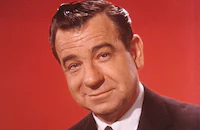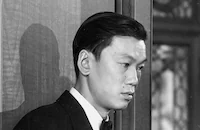Charley Varrick

Brief Synopsis
Cast & Crew
Don Siegel
Walter Matthau
Joe Don Baker
Felicia Farr
Marjorie Bennett
Woodrow Parfrey
Film Details
Technical Specs
Synopsis
An unlucky crop-dusting pilot robs a bank, only to find that the bank is used by the Mafia to launder money.
Director

Don Siegel
Cast

Walter Matthau
Joe Don Baker

Felicia Farr

Marjorie Bennett
Woodrow Parfrey

Norman Fell

Sheree North

Don Siegel
Kathleen O'malley
Virginia Wing
Albert Popwell
Colby Chester
Andrew Robinson
Scott Hale

John Vernon
Charlie Briggs
William Schallert
Rudy Diaz
Charles Matthau

Tom Tully
James Nolan
Craig Baxley
Al Dunlap
Christina Hart
Monica Lewis
Jacqueline Scott
Hope Summers

Benson Fong
Priscilla Garcia
Crew
Michael Butler
Fernando Carrere
Joe Cavalier
Scott Hale
Bob Holt
John Kean
Jennings Lang
Frank Morriss
John Reese
Dean Reisner
Howard Rodman
Lalo Schifrin
Don Siegel
Waldon O. Watson
Videos
Movie Clip




Trailer
Hosted Intro
Film Details
Technical Specs
Articles
Charley Varrick
Matthau plays the title character, a small-time bank robber who mostly flies crop dusters for a living. When Charley and his partners, including Harman (Andrew Robinson), a wild-eyed, much younger man, rob a bank in the desert town of Tre Cruces, New Mexico, they end up with more than they bargained for: $750,000 in mob money. Charley is familiar enough with the territory to know that he's in major trouble if he keeps the cash, but Harman isn't about to fork it over. So a methodical and sadistic hit man named, of all things, Molly (Joe Don Baker, in chilling form), is dispatched to kill Charley and Harman.
A tense game of cat-and-mouse ensues, during which Charley reveals that he's got far more up his sleeve than his mob enemies might realize. A small-timer only in theory, he manages to stay several steps ahead of Molly, although hot-headed Harman keeps tripping things up. Siegel peppers this ingenious, character-driven narrative with several jolting action sequences, and the dialogue (by co-screenwriters Dean Riesner and Howard Rodman) is tinged with sardonic black humor.
Charley Varrick is crawling with familiar faces in supporting roles. Baker, of course, would go on to brief fame for portraying an altogether different kind of brute - Walking Tall's (1973) Sheriff Buford Pusser. There are also memorable turns from Norman Fell (Mr. Roper on TV's Three's Company) and John Vernon (Animal House's [1978] Dean Wormer.) Dirty Harry fans will also note that Robinson played that film's memorably twisted serial killer. Siegel obviously had a thing for psychopaths.
Still, the biggest casting surprise has to be Matthau playing a crook...albeit an unexpectedly humanistic one. [Spoiler Alert] Notice the tender scene in the early part of the film during which Charley realizes that his female bank-robbing cohort is dead; it stands as one of the more moving character revelations in crime picture history. To say any more would ruin its considerable impact.
Although Charley Varrick was very well received critically, it was a disappointment at the box office. Matthau even won the British Academy Award for Best Actor for his efforts, but Siegel insisted that Matthau himself contributed significantly to the picture's eventual failure by telling everyone within earshot that he didn't like it and didn't understand it!
In his autobiography, A Siegel Film, Siegel included excerpts from a tape that Matthau sent him after first reading the script: "I think that there should be a device which explains what is happening," Matthau said. "Since I have read it three times, and am of slightly better than average intelligence 120 IQ I still don't quite understand what's going on. Well, I really do understand what's going on, but only because it was explained to me. There's no way to explain to people sitting in the theater what they're seeing; so why don't we explain it? Why don't we have a device?"
Siegel would have none of it. "Walter wants to see the banana before he slips on it," he noted. "I don't want everything explained and then see it." The director was right, regardless of whether his star agreed with him, and Charley Varrick is all the more engrossing for expecting the audience to patiently play along with its numerous twists and turns. This is intelligent, commercial filmmaking at its finest. They rarely make them like this anymore.
Produced and directed by: Don Siegel
Screenplay: Dean Riesner and Howard Rodman (based on the novel The Looters, by John Reese)
Cinematography: Michael Butler
Editing: Frank Morriss
Music: Lalo Schifrin
Art Direction: Fernando Carrere
Costumes: Helen Colvig
Principal Cast: Walter Matthau (Charley Varrick), Joe Don Baker (Molly), Felicia Farr (Sybil Fort), Andy Robinson (Harman Sullivan), John Vernon (Maynard Boyle), Sheree North (Jewell Everett), Norman Fell (Mr. Garfinkle), Benson Fong (Honest John), Woodrow Parfrey (Howard Young), William Schallert (Sheriff Bill Horton), Jacqueline Scott (Nadine Varrick).
C-111m. Letterboxed. Closed Captioning.
by Paul Tatara

Charley Varrick
Quotes
I like your bed. You may find this hard to believe but I've never slept on a round bed.- Charley Varrick
Is that so?- Sybil Fort
What's the best way? North, south, east, or west?- Charley Varrick
That depends on what you had in mind.- Sybil Fort
What I had in mind was boxing the compass.- Charley Varrick
It has to do with this bag of money I'd like to give back to you.- Charley Varrick
So give it back. What's the problem?- Maynard Boyle
The problem is the big gorilla in the maroon car who's trying to kill me.- Charley Varrick
Trivia
a table tennis player.
Working title: "The Last of the Independents".
Joe Conforte the owner of Mustang Ranch has a cameo as himself.
A yellow Lincoln Continental sedan is used during a major plot in the film, during the bank heist. This particular scene is similar in Telefon (1977), where a yellow Lincoln Continental is used during the attempted bombing of the Hyatt Regency in Houston, Texas (actually San Francisco, California, where the film took place).
Miscellaneous Notes
Released in United States October 1973
Released in United States Winter January 1, 1973
Re-released in United States on Video June 29, 1994
Released in United States Winter January 1, 1973
Re-released in United States on Video June 29, 1994
Released in United States October 1973
















